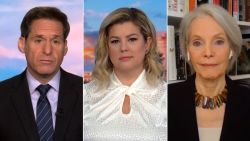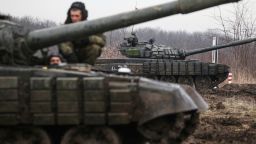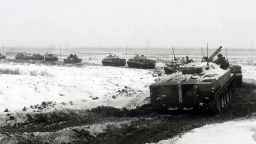As war talk over Ukraine reached fever pitch and invasion fears crested over the past week, one world leader remained decidedly above the fray: Russian President Vladimir Putin.
No, Putin wasn’t on vacation. The Kremlin leader kept up a full schedule, but he made scant public remarks about an international crisis that had reached full boil.
Last Wednesday, the United States and NATO delivered their written responses to Russian security demands, offering Moscow what US Secretary of State Antony Blinken described as a diplomatic off-ramp from a dangerous path of escalation toward war.
And then, dead air. On Thursday, Putin spent the day paying a solemn public visit to Piskaryovskoye Memorial Cemetery to mark the anniversary of the lifting of the Siege of Leningrad, the Soviet-era name for St. Petersburg, laying flowers at a common grave that contains the remains of his elder brother, Viktor, who died as an infant during the blockade.
On Friday, Putin chaired a national security meeting. But again, the Kremlin gave only an anodyne readout and released a brief snippet of Putin discussing a new foreign policy document.
While Russian Foreign Minister Sergey Lavrov offered a few curt assessments of the letter – saying the Russians had “no positive reaction” on the main sticking point, the Kremlin’s call for a halt to further NATO expansion to the East – it was clear that the world would have to wait for a more fulsome response from Putin.
And Putin can wait. While Western leaders have worked themselves into a lather over the Ukraine crisis, Putin is a man who faces very little domestic political pressure. His political opposition has been sidelined or put in jail, he has a pliant state media and doesn’t have to think about any re-election campaign in the near future. He does not have to consult with an unruly parliament on foreign affairs.
That makes him the man to talk to. On Friday, French President Emmanuel Macron held a phone call with Putin on the Ukraine crisis, with the Elysée saying Putin told Macron that “he was the only one he could have such a deep discussion with.”
The Kremlin summary of the call signaled Putin’s dissatisfaction with responses from the US and NATO, saying the letters “did not take into account such fundamental concerns of Russia as preventing NATO expansion, refusing to deploy strike weapons systems near Russian borders, as well as returning the military strength and infrastructure of the [NATO] bloc in Europe to the positions of 1997,” but the statement gave little indication how and when Putin planned to respond formally.
On Monday, State Department officials said they had “received a written follow-up from Russia,” but on Tuesday the Kremlin said there had been a “mixup” over the issue, insisting that Russia has yet to send its “main reply” to the US.
Kremlin spokesperson Dmitry Peskov said the correspondence from Russia “regarded a different matter. The main reply … hasn’t been handed over, it’s still being prepared.”

Macron, who is gearing up for a presidential campaign, wasn’t the only one busying himself with the crisis. British Prime Minister Boris Johnson – on the back foot over Downing Street lockdown gatherings and an animal rescue in Afghanistan – unveiled plans Friday to speak to Putin and travel to the region in his bid to defuse the crisis.
Turkish President Recep Tayyip Erdoğan made a separate bid to engage Putin, inviting the Russian president to attend a summit and offering to mediate between Russia and Ukraine. The Kremlin said Putin had accepted, depending on the resolution of the “epidemiological situation,” and no date has been fixed – although Turkish Foreign Minister Mevlut Cavusoglu told reporters Thursday he had been informed by the Kremlin it will be after Putin returns from the Beijing Olympic Games that start on February 4.
So does Putin hold all the cards? Will he bide his time through the Winter Olympics, where he will be a guest of Chinese President Xi Jinping? Is he an expert tactician, or a poor strategist? Divining Putin’s master plan may be a pastime for pundits, but the Russian President has made his intentions very clear for a very long time.
One need not read Putin’s mind. His words speak for themselves.
Back in 2007, Putin laid out his main grievances at the Munich Security Forum. His argument? The expansion of the NATO alliance to include former members of the Warsaw Pact and the Baltic States was an act of aggression directed at Russia.
“I think it is obvious that NATO expansion does not have any relation with the modernization of the Alliance itself or with ensuring security in Europe,” he said. “On the contrary, it represents a serious provocation that reduces the level of mutual trust. And we have the right to ask: Against whom is this expansion intended?”
And then there was the stationing of US missile defense assets in Europe. In Putin’s view, missile defense – which Washington billed as a counter to rogue states such as Iran and North Korea – was actually designed to undercut Russia’s nuclear deterrent.
More ominously, Putin said this: “I am confident that the historians of the future will not describe our conference as one in which the Second Cold War was declared. But they could.”
That conflict – call it Cold War Lite, or Cold War 2.0 – has gradually gained momentum since then, through successive crises: Russia’s annexation of Crimea in 2014 and the war in Donbas; the Kremlin’s intervention in Syria’s civil war in 2015; Russian meddling in the 2016 US election; the 2018 Salisbury poisonings in England; and so on.
Putin also built a rationale for war in the summer when he published a 5,000-word historical essay, arguing, in essence, that Ukrainians and Russians were a single nation. Independent Ukraine, in his view, was an “artificial division” of two peoples – and therefore not a real state.
Kremlin spokesperson Peskov has said Putin and his government “will not rush to judgements.” Now that the Second Cold War is threatening to turn into a very hot one, the world must wait to see if Putin’s next move signals a turn for the worse in global affairs.





















